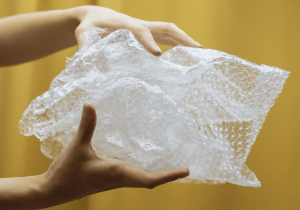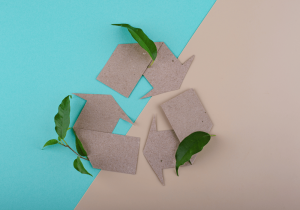At MBI Industrial Manufacturing Group, we pride ourselves on delivering high-quality custom metal fabrication services for industries worldwide. But as manufacturing evolves, so does the responsibility to adopt sustainable practices. Eco-friendly initiatives are no longer optional; they’re vital for long-term environmental and business success. A major focus of this shift is eco-friendly packaging. Packaging plays a critical role in protecting, storing, and shipping custom metal products, yet traditional materials often harm the environment. This blog explores the importance of eco-friendly packaging within the metal fabrication industry and its benefits for businesses, customers, and the planet.
The Environmental Impact of Traditional Packaging
 Traditional packaging materials, such as plastic wraps, bubble cushions, and non-recyclable cardboard, have long been a staple in safeguarding metal goods during transit. However, their environmental cost is staggering. Plastics, for instance, can take hundreds of years to degrade, clogging landfills and polluting natural ecosystems. Beyond the visible waste, the production of these materials generates a significant carbon footprint due to high energy consumption and petroleum-based manufacturing processes.
Traditional packaging materials, such as plastic wraps, bubble cushions, and non-recyclable cardboard, have long been a staple in safeguarding metal goods during transit. However, their environmental cost is staggering. Plastics, for instance, can take hundreds of years to degrade, clogging landfills and polluting natural ecosystems. Beyond the visible waste, the production of these materials generates a significant carbon footprint due to high energy consumption and petroleum-based manufacturing processes.
Improper disposal compounds the issue. Millions of tons of traditional packaging materials end up in oceans, damaging marine life, or are incinerated, releasing harmful emissions into the atmosphere. This creates a cycle of environmental degradation that impacts air quality, water systems, and even soil fertility. Companies using such packaging not only contribute to these global challenges but could also tarnish their brand reputation among eco-conscious consumers.
Shifting away from these materials is not just a moral imperative; it’s becoming an industry necessity. Customers now demand sustainable alternatives, and failing to meet this expectation could leave businesses both environmentally detrimental and commercially disadvantaged.
Benefits of Eco-Friendly Packaging
Transitioning to eco-friendly packaging offers numerous rewards, especially in industries like metal fabrication, where shipping durability and customer satisfaction are paramount. Firstly, sustainable packaging reduces environmental impact by minimizing waste and lowering greenhouse gas emissions associated with production and disposal. Materials like biodegradable plastics break down naturally, while recyclable cardboard can be repurposed without harming ecosystems.
Businesses also benefit from promoting sustainability. By using eco-friendly packaging, brands show that they value environmental responsibility, earning trust and loyalty from modern, green-minded consumers. This distinction can be a competitive edge in capturing market share. Additionally, eco-friendly packaging solutions often provide better protection against corrosion, moisture, or damage, ensuring the quality of metal products reaches the customer uncompromised.
Lastly, adopting sustainable practices aligns with global environmental regulations. Many regions are introducing stricter mandates to curb non-recyclable materials and reward companies that prioritize sustainability. Eco-conscious packaging not only keeps businesses compliant but positions them as forward-thinkers on regulatory changes.
Types of Eco-Friendly Packaging Materials
Fortunately, there are plenty of practical, eco-friendly options for packaging custom metal products. Recyclable cardboard is an excellent choice, offering durability, flexibility, and adaptability to various product sizes and shapes. It’s easy to source, affordable, and can be reused or recycled after initial use.
For cushioning or protective layers, biodegradable plastics are an innovative solution. Unlike traditional plastics, these decompose naturally over several months, significantly reducing waste. Plant-based packaging materials derived from organic substances such as cornstarch or bamboo also offer strong, water-resistant alternatives that are ideal for heavy or oddly shaped metal products.
Innovations like molded pulp packaging, made from recycled paper, are great for sensitive items like precision tools or small components needing extra support during transit. Foam alternatives like mushroom-based padding and seaweed wraps are gaining prominence, offering high-impact protection without the environmental downsides of Styrofoam. Implementing these versatile materials minimizes a company’s ecological footprint while meeting performance needs.
Cost-Effectiveness of Sustainable Packaging
 One common misconception about eco-friendly packaging is that it’s prohibitively expensive. While the upfront cost can sometimes surpass that of traditional materials, the long-term savings and benefits far outweigh the initial investment. Sustainable packaging reduces disposal costs, as less waste typically results in lower landfill fees or processing expenses.
One common misconception about eco-friendly packaging is that it’s prohibitively expensive. While the upfront cost can sometimes surpass that of traditional materials, the long-term savings and benefits far outweigh the initial investment. Sustainable packaging reduces disposal costs, as less waste typically results in lower landfill fees or processing expenses.
Brands that adopt eco-friendly materials also benefit from enhancing their image. Modern consumers are increasingly willing to support companies that prioritize sustainability, often paying premium prices for environmentally responsible products. This loyalty can translate into higher sales and better customer retention.
Government incentives play a significant role, too. Various countries offer tax breaks, grants, and subsidies for adopting green business practices, which can offset some of the packaging transition costs. Furthermore, businesses that actively adopt eco-friendly methods can incentivize partnerships or collaborations, strengthening their network while becoming industry leaders in sustainability.
The Future of Eco-Friendly Packaging in Manufacturing
The trajectory for eco-friendly packaging is nothing short of revolutionary. Emerging trends like smart packaging, integrating sensors to monitor shipment conditions, and aligning sustainability with advanced functionality. Materials such as algae-based plastics and bio-fabricated fibres hold promise for creating ultra-strong, biodegradable solutions tailored for industrial shipping.
Researchers are constantly innovating to enhance packaging resilience and customization, reducing dependency on synthetic substrates. Manufacturers can also anticipate new policies encouraging circular economies, where recycling and reuse dominate the packaging lifecycle. Companies that remain adaptive, continually improving their green practices, will leave competitors behind and future-proof themselves.
Eco-friendly packaging is more than a trend; it’s a necessity for custom metal manufacturing’s sustainable future. Reducing waste, safeguarding resources, and improving customer perception are just the beginning of its benefits. The time to act is now. Whether you’re looking to adapt your packaging practices or enhance your brand’s environmental strategy, sustainable packaging is the path forward. Join MBI Industrial Manufacturing Group on this journey and help build a greener tomorrow by adopting eco-friendly packaging strategies today.
